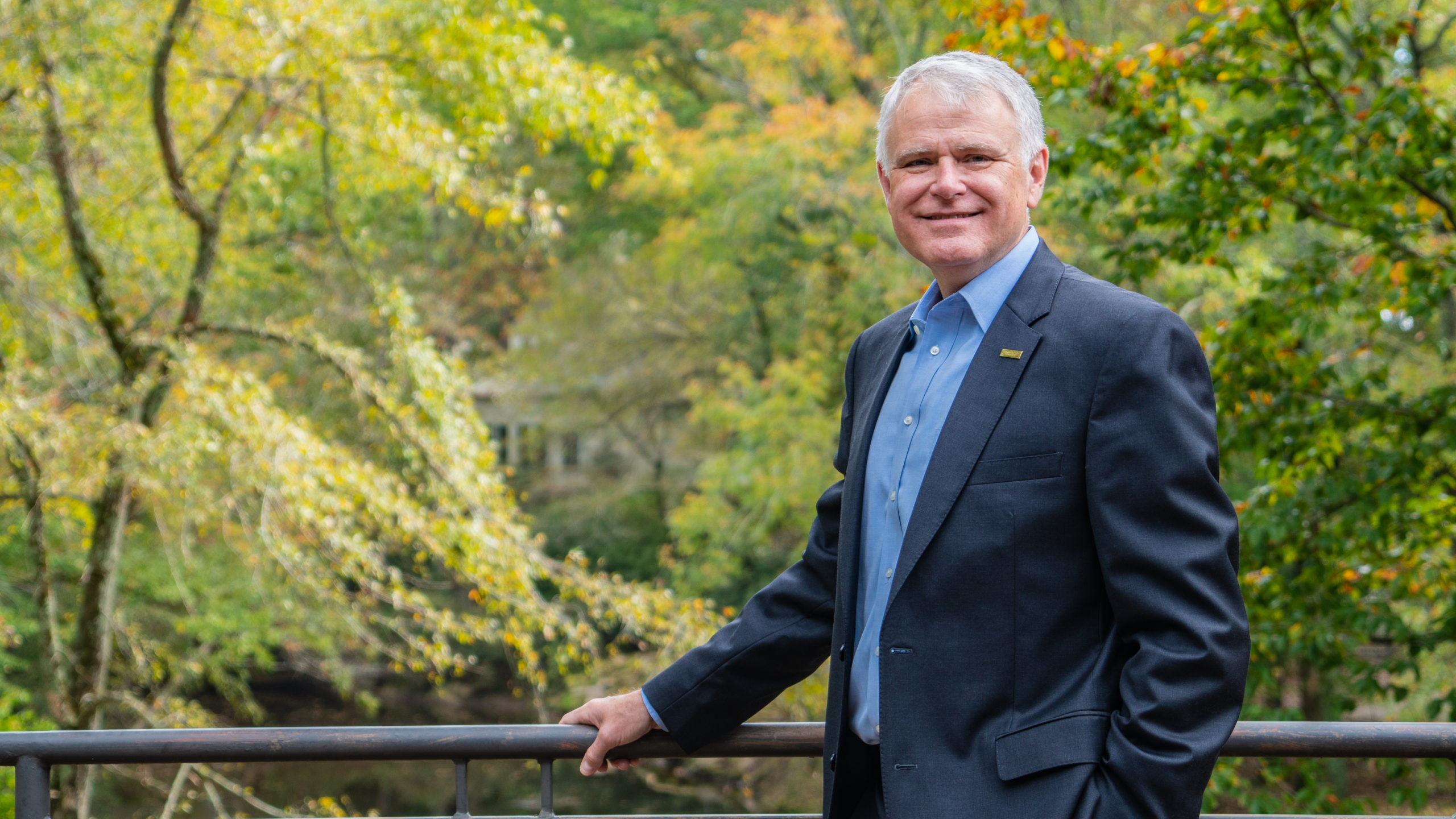
March 11, 2021 Edition
“You can pretend to care, but you cannot pretend to be there” is a phrase I have used often and throughout my career. Traveling to rural communities to meet in person with applicants, grantees, and stakeholders is embedded as part of our culture at Golden LEAF. We believe we must put boots on the ground to truly understand the challenges and opportunities in the communities we serve.
Like everyone, we shifted to virtual meetings as a result of the pandemic. But, as guidance and best practices allow, we have recently begun making the transition back to in-person meetings. Recently, I have been able to join our partners at the John M. Belk Endowment and EdNC for visits at four community colleges and one university.
Early on in the pandemic, I reached out to all 58 community college presidents to hear their perspectives and how their college was adapting. I truly believe our community colleges will be the catalyst for recovery due to their ability to adapt, innovate, and make an impact.
Prior to the pandemic, the John M. Belk Endowment and EdNC began an effort to visit all 58 community colleges to gain a deeper understanding of the role these unique institutions play. I’d like to extend a special thanks to MC Belk Pilon and her team at the John M. Belk Endowment for the invitation to join their visits as well as Nation Hahn and his team at EdNC for coordinating.
The first quarter of 2021, we visited Surry Community College, Vance-Granville Community College, College of the Albemarle, Elizabeth City State University and Martin Community College. At each stop, we were accompanied by the community college presidents, their trustees and staff, as well as many of the local school superintendents and other community leaders. N.C. Community College System President Thomas Stith and N.C. Superintendent of Public Instruction Catherine Truitt were able to participate in a few of these campus visits as well.
While each college was different, I noticed that all have demonstrated the ability to quickly adapt to ensure student success. It is no secret that we are still in trying times, but each college has seen challenges and has risen to the occasion to keep students enrolled, engaged, and graduating to go out into the workforce to fill available jobs.
The faculty and students are continuing to make an impact on our economy. When you hear the stories from the students themselves, you learn what brought them into the program, what they plan to do, and why they are driven to pursue a chosen career path. You see the full picture of the workforce from recruitment to training to career.
The Golden LEAF Board recently funded an electric lineman program at Martin Community College (MCC). While on campus at MCC, we were able to see students training on poles, meet with instructors recruited from industry leading this program, and hear from employers about the first graduating class of students.
Going up ⬆️ on a Thursday at Martin CC. pic.twitter.com/Sb2kcV1dAB
— Awake58 (@Awake58NC) March 4, 2021
At the College of the Albemarle, we toured and learned how the college has adapted available space to create simulation labs for healthcare program students, including using a home that had been previously donated and used years prior as the college president’s living quarters. Sometimes it takes just a little out of the box thinking to use the assets you already have to make a program work.
.@ncLEAFchief and @MCBelkPilon trying to “save” a patient @COA_Dolphins today. pic.twitter.com/Mr07J7YlcS
— Awake58 (@Awake58NC) March 4, 2021
Strengthening our statewide relationships is important. I have met with all 58 community college presidents virtually, but by following up on campus, it provides the full picture of the employment opportunities in the area, not just what Golden LEAF is funding. Building and growing our networks, helps bolster our understanding of the assets and challenges across the state. It helps us see strategies in action and brings people together to collaboratively create solutions.
These in-person convenings often spur ideas for collaboration. They help build out multi-partner strategies for economic success. While virtual meetings have their place, practicing safe convening helps keep the conversation open and evolving, while we search for innovative solutions for hard to solve needs.
We gain more together than alone. I will continue to strengthen relationships with existing partners, work with new partners, and hear from those that benefit from the programs so that Golden LEAF will be able to provide opportunities for growth and prosperity for its people all across the state.